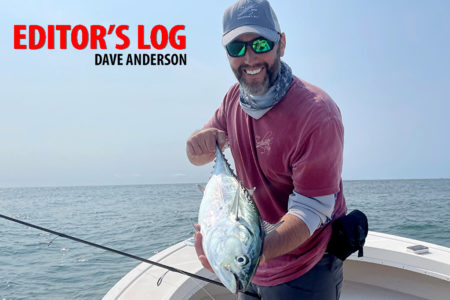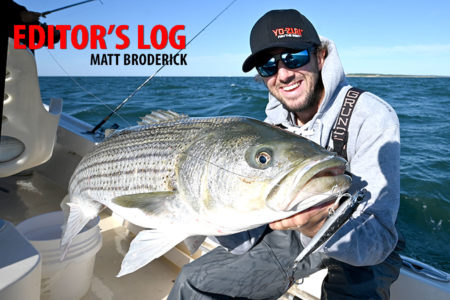It has been a rough season in terms of fishing access, with beaches and parks across Long Island and New York City shut down for most of the spring due to the coronavirus pandemic. In New York City’s case, some of these areas remain closed as I write this. Thankfully, state and Suffolk County beaches provided some relief as they remained accessible to those seeking safe and healthy outdoor recreation, which included fishing. Unfortunately, the popular West End Work Dock fishing access site at Jones Beach, along with the West End 2 parking field, had to be closed when West End 2 became a major testing site for the virus. Both areas reopened with 24 hour access to fishermen possessing state Sportfishing or Beach Vehicle permits on Saturday, June 20th.
With that good news comes what has become an annual plague where beach access is concerned. Piping plovers are back setting up nests and creating havoc with access to some of the most popular fishing areas in the region. Access to places like Breezy Point, Gilgo, Democrat Point, Smith Point, Cupsogue and Napeague typically becomes severely restricted, or in some cases non-existent. Democrat Point was the latest victim when it was shut down due to a nesting plover east of the drive-on along the ocean side. Fish & Wildlife put the lid on a plan by parks to allow daytime access between 7 a.m. and 7 p.m., but the state has been trying to work out some form of access with them and NYDEC. Access at Smith Point is so restricted with limitations on when you can access the beach and the small amount of beach that is open, that it is virtually useless to most serious surfcasters. I heard from a caster who was fishing the Breezy Point area when that area was shut down and he was told he had to leave the beach because a plover had nested in the area. New York City shuts down a stretch of beach in the Rockaways on an annual basis during plover nesting season, and the National Park service is tasked with plover protection for the Gateway National Recreation area which includes Breezy Point, Fort Tilden and Sandy Hook, NJ.
We have editorialized on this issue numerous times in the past. There has to be a way where thousands, probably tens of thousands of people, if you consider the coast from Cape Cod down through the Jersey shore, are not deprived of access to parklands intended for recreational use during the height of the summer season. Unfortunately, Fish & Wildlife appears to wield some ungodly power over the municipalities tasked with protecting these birds, and make them liable for exorbitant fines if they are unsuccessful. If Fish & Wildlife is so concerned with protecting piping plovers, they should be the ones responsible for protecting them. Let them absorb the expenses of setting up enclosures, fencing off areas and paying monitors to oversee the protection of these birds.
And while some would have the public believe these birds are on the endangered list, the fact is that while the Great Lakes population is, the Atlantic Coast population is not. It is currently not even considered threatened, but instead near-threatened with the population on the increase. There are people and organizations out there who would like to see our beaches turned completely over to these birds. Most fishermen respect the need to protect piping plovers but in a way that still allows reasonable use of our beaches and this recurring pattern of closing down beach access has to stop. I hear the complaints, the frustration and anger from people who are kept from doing what they enjoy most every summer. There has to be a better answer.
One answer is what’s known as the Habitat Conservation Plan which requires municipalities to meet certain guidelines that allow a more mutually beneficial approach when it comes to protecting plovers. Massachusetts had their HCP approved and it has resulted in expanding access, while also helping to rebuild the plover population in places like Cape Cod. The State Fishing Advisory Board first requested the state pursue this nearly four years ago and there has been no progress made toward meeting the requirements for a plan. While that is disappointing, the real blame lies with Fish & Wildlife and their failure to compromise, while burdening the various municipalities with a task that they should be responsible for. And, I don’t want to hear it is not in their budget because neither is it in the budget of financially strapped state, county and town budgets. It would sure be nice to see a plan that protects piping plover while providing fishermen and beachgoers with the ability to do what they love to do most, and why so many live here in the first place.


